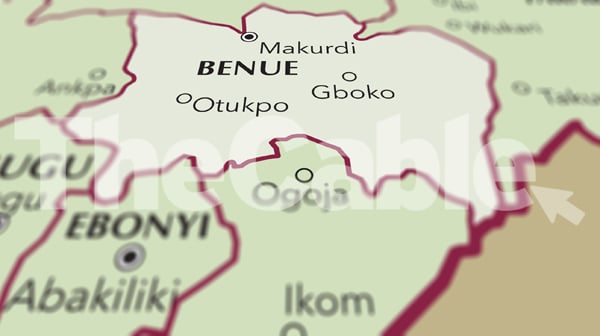For quite a long time, the primary healthcare facilities at Odo Nla, a riverine community in Ilaje LGA of Ondo state, have operated without a sustainable power supply.
Often, healthcare workers use kerosene lanterns at night to attend to patients; they have had to attend to pregnant women during childbirth holding lamps.
According to the Health Electrification and Telecommunications Alliance (HETA), a US-led Power Africa initiative, an estimated 100,000 health facilities in sub-Saharan Africa lack reliable access to the electricity and digital connectivity they need to equitably serve their communities.
Despite initial renewable energy interventions to power last-mile communities in Ondo state, the healthcare centre at Odo Nla was one of those underserved facilities.
Advertisement
Many coastal communities, such as Odo Nla in Nigeria’s oil-rich Niger Delta, are not connected to the national grid; running and powering healthcare facilities there rely on petrol or diesel-powered generating sets.
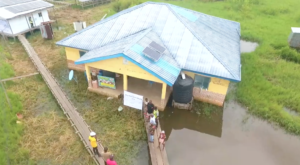
“We were able to power more than six communities within Odo Nla, but we were not able to power the health centres because they could not afford the tariff that we were giving the communities,” says Ajibola Alao, an engineer and energy access coordinator.
Alao was one of the engineers who supervised the powering of some coastal communities through renewable energy a few years ago.
Advertisement
But there is now light at the end of the tunnel for the residents. The story has changed from darkness to light for at least four healthcare centres in Ilaje LGA.
The healthcare centre is one of the 12 facilities in three Niger Delta states — Delta, Bayelsa, and Ondo — that have benefited from access to renewable energy facilitated by a collaboration between the PIND Foundation and the US government-led HETA.
The partnership includes ABT Associate, Resolve, Bethel, Power Africa, and Orange. It seeks to deliver quality healthcare services by offering clean electricity access to healthcare centres in the Niger Delta and Nigeria at large.
DECADES OF DARKNESS, RENEWABLE ENERGY CHANGED THE STORY
Advertisement
Akintokun Julius, a community health extension worker in Odo Nla, said the outfit has relied on lamps for its activities at night for many years. Julius added that it was always challenging to keep specimens intact at the hospital due to the challenges of power supply.
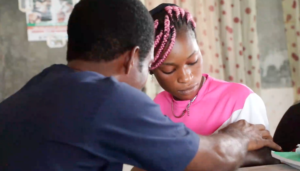
“Since I got here, the hospital has been making use of lamps as a source of light,” Julius said. The primary healthcare centre is now powered by an 8KW inverter and 15KW lithium batteries at no cost.
“With the installation of solar energy, we have been able to generate electricity in the hospital, and things have been moving on smoothly,” Julius noted.
Baishomore Alaafia, another community health extension worker in Odo Nla, said for over one year that residents started enjoying electricity via the first intervention, but the health centre could not benefit due to the high tariff.
Advertisement
Odo Nla community, he said, has witnessed a transformation in socio-economic activities since the health facility was connected to solar energy.
“We are enjoying the electricity in the health centre now, and it’s also impacting our community positively,” he said.
Advertisement
Elsewhere at Oju Imole in the same Ilaje LGA, Fidelix Eniola, a community head, re-echoed the impact of clean and renewable energy on the healthcare centre since it was included in the HETA project.
At Oju Imole, the residents were also connected to the power supply. Eniola recalled that the community has been in darkness for years and noted that there is now progress in all aspects of life with the connection to solar energy.
Advertisement
A community health officer, who wants to be identified as Oluwatobi, said they were powering the health centre with a generator before the intervention.
Oluwatobi noted that the cost of running the hospital with a generating plant was quite exorbitant, with attendant technical itches oftentimes.
Advertisement
“Now, there is light day and night, and we do our work more effectively,” he enthused.
At Odun Igo community in Ilaje LGA, the solar energy installed for the health centre was extended to residents who were charged a small tariff for sustainability and to maintain the system, according to Timothy Ololude, a solar engineer.
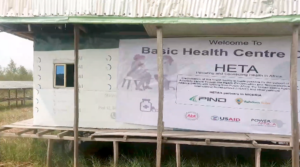
Like others in the LGA, the health centre at Odun Igo previously relied on generating sets for electricity.
“We always switch on the generator in the morning, afternoon, and evening, or if we have an emergency,” Ajimuda Odunayo, a community health worker, said.
“Now that we have solar electricity, it will be of good use because we will be able to run the light for 24 hours. If we have an emergency in the evening, there is no need to run up and down for fuel. Thank you to PIND and USAID for powering the health centre.”
Nomiye Beauty, a resident, expressed joy over the connection of the health centre to solar energy.
“I’m very happy for the solar energy that they have provided for us,” Beauty said.
“Before now, if a patient is brought here, we will rush to go and buy fuel. But now, there is light, and it is free. We are not paying for fuel for a test again.”
BAYELSA, DELTA: SELF-SUSTAINING AND SAFE SOLAR ENERGY TO THE RESCUE
Doctors and nurses were always frustrated at night, especially when there was an emergency at the Ogbudugbudu community of Warri North LGA in Delta state.
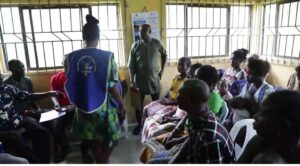
The primary healthcare facility, with about 12 beds, three labour rooms, a dispensary, and a laboratory, was not connected to electricity. But with a 15KW grid and 20KW of solar storage, the facility has been serving residents more than ever.
It’s a solar solution that is self-sustaining and environmentally friendly, said Muyideen Oladapo, a solar engineer who supervised the installation.
“It has cut away the use of diesel and gasoline generators. It creates an enabling environment for both the workers — the nurses, doctors, and patients,” he added.
Salu Gabi, a community health worker at the PHC, confirmed that the facility was without electricity before the installation of the solar panel.
“This will be a huge help to the health centre because the greatest challenge we had was light,” Gabi said.
“At night, doctors and nurses could not attend to patients because there was no light. We thank USAID and PIND for bringing electricity to our healthcare centre.”
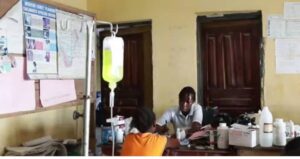
“Life is good with electricity” captures the excitement of residents of the Deghele community under Warri North LGA in Delta state.
Before now, we have been having challenges with electricity in this health centre, said Esuku Hope, an assistant nurse at Deghele PHC.
“We didn’t have light, and it affected us, especially when we had an emergency at night. When we even buy fuel, the generator will develop a fault, and the light will go off,” Hope said.
Such experiences now belong to the past.
“But now, we are very grateful for this light that they gave to us, and they gave us free,” an elated Hope said. “We are happy because if patients come at night now, we have light to work properly.”
Moses Amole, community youth leader, said: “Initially, we were using a generator to power the health centre.”
“You know the disadvantages of using a generator — the cost of diesel and petrol. But now that we have solar lights for free, the community is very happy.”
At Obaghoro community, Eric Edah, a community health officer, still remembered how she and her team used candles and lanterns at night to attend to emergencies at the PHC.
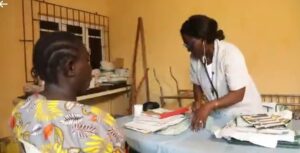
“Before now, we had a challenge with electricity supply,” she said. “In cases of emergency, we used torchlight and sometimes, candle. But with the powering of the healthcare centre with solar light, we can now enjoy electricity.”
In Fishtown community, Brass LGA of Bayelsa, extending electricity from the healthcare centre to the community has greatly alleviated the suffering of the people, said Gideon Ijie, PIND’s project field manager for solar energy.
Augustine Joseph, a community health officer, is more excited than other residents because he can now keep specimens for tests and other perishable drugs in the freezer without fear of power failure.
“We were in darkness. We spent a lot of money running our lights, buying fuel, and buying diesel, and most of the time, the system failed us,” Joseph said.
“But now, since they have installed the solar, by God’s grace, all my specimens have been kept well in the clinic, and we have been enjoying the light.
“For this community, Fishtown, we have a community generator, but it has been over a year since it broke down. I have been using my generator, which is a Lister,” said Lawyer N, a resident.
“Since they installed the solar, it is better than the stress associated with using the Lister.
“Today, I have light in my house, from morning till night and night till morning again. Lister cannot work like that one for you.”
PIND, HETA’S COLLABORATION
In its first annual report, Powering and Connecting Health in Africa, HETA said it engaged with USAID and partners in 11 countries, secured funding commitments exceeding $10 million, and equipped nearly 230 health facilities in Tanzania and Nigeria with new or improved electricity and digital connectivity solutions powered by clean energy.
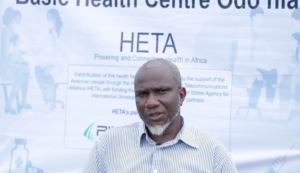
The PIND Foundation joined the alliance in 2022 and was selected to implement the project in the Niger Delta region based on its record of success in providing access to reliable and affordable solar energy to last-mile communities.
In 2023, while contributing its financial and technical resources, PIND also leveraged a grant of over $200,000 from the alliance and partnered with several private sector players to extend electricity to the 12 primary healthcare facilities in the three states.
At the end of 2023, the following healthcare centres were powered by renewable energy under the collaboration: Odo Nla Basic Health Centre, Ilaje LGA, Ondo state; Awamba PHC, Warri North LGA, Delta state; Obaghoro PHC, Warri North LGA, Delta state; Oju Imole PHC, Ilaje LGA, Ondo state; Ogbinbiri, PHC, Warri North LGA, Delta state; Koluama 2 Health Centre, Southern Ijaw LGA, Bayelsa state; Fishtown Health Post, Brass LGA, Bayelsa state; Odofado Health Centre, Ilaje LGA, Ondo state; Odun Igo PHC, Ilaje LGA, Ondo state; Jirinwo Basic Health Centre, Ilaje LGA, Ondo state; Deghele PHC, Warri North LGA, Delta state; and Ogbudugbudu PHC, Warri North LGA, Delta state.
Teslim Giwa, PIND’s access to energy manager, said the initiative contributes to the foundation’s overall goal of lighting up the Niger Delta one community at a time.
“The phased approach also aligns with HETA’s five-year plan, offering reliable electricity for daily healthcare needs and community-wide use through private-sector participation,” Giwa said.
“Without these services, facilities can’t keep the lights on for nighttime births or emergency surgeries, run equipment that keeps vaccines viable, or modernise their communication and records management systems.
“This creates gaps in service delivery, limits access to health services, and diminishes health systems’ resilience to climate change and other threats.”
Launched in October 2022, the Health Electrification and Telecommunications Alliance (HETA) is Power Africa’s flagship initiative for health facility electrification and digital connectivity in sub-Saharan Africa.
The project seeks to catalyse public-private partnerships to co-invest and collaboratively develop sustainable business models that increase access to reliable, renewable energy and internet connectivity for health facilities across the region.
Add a comment


